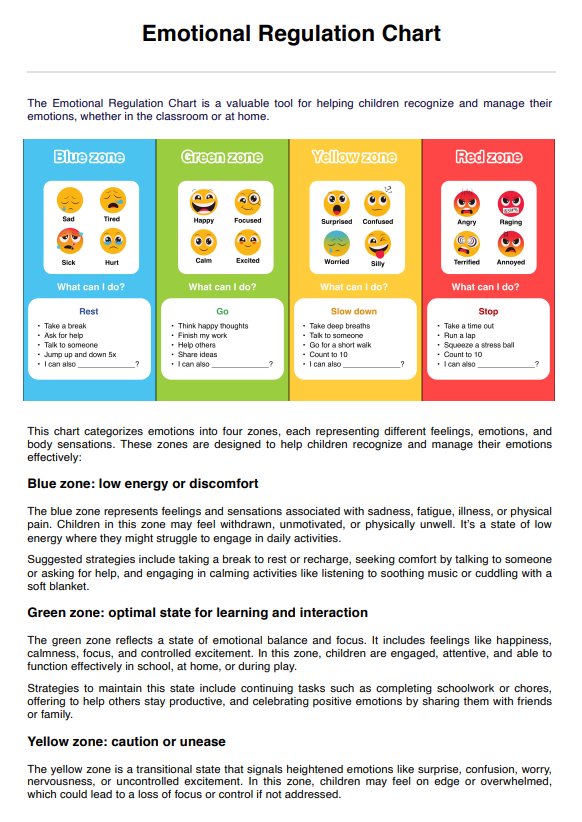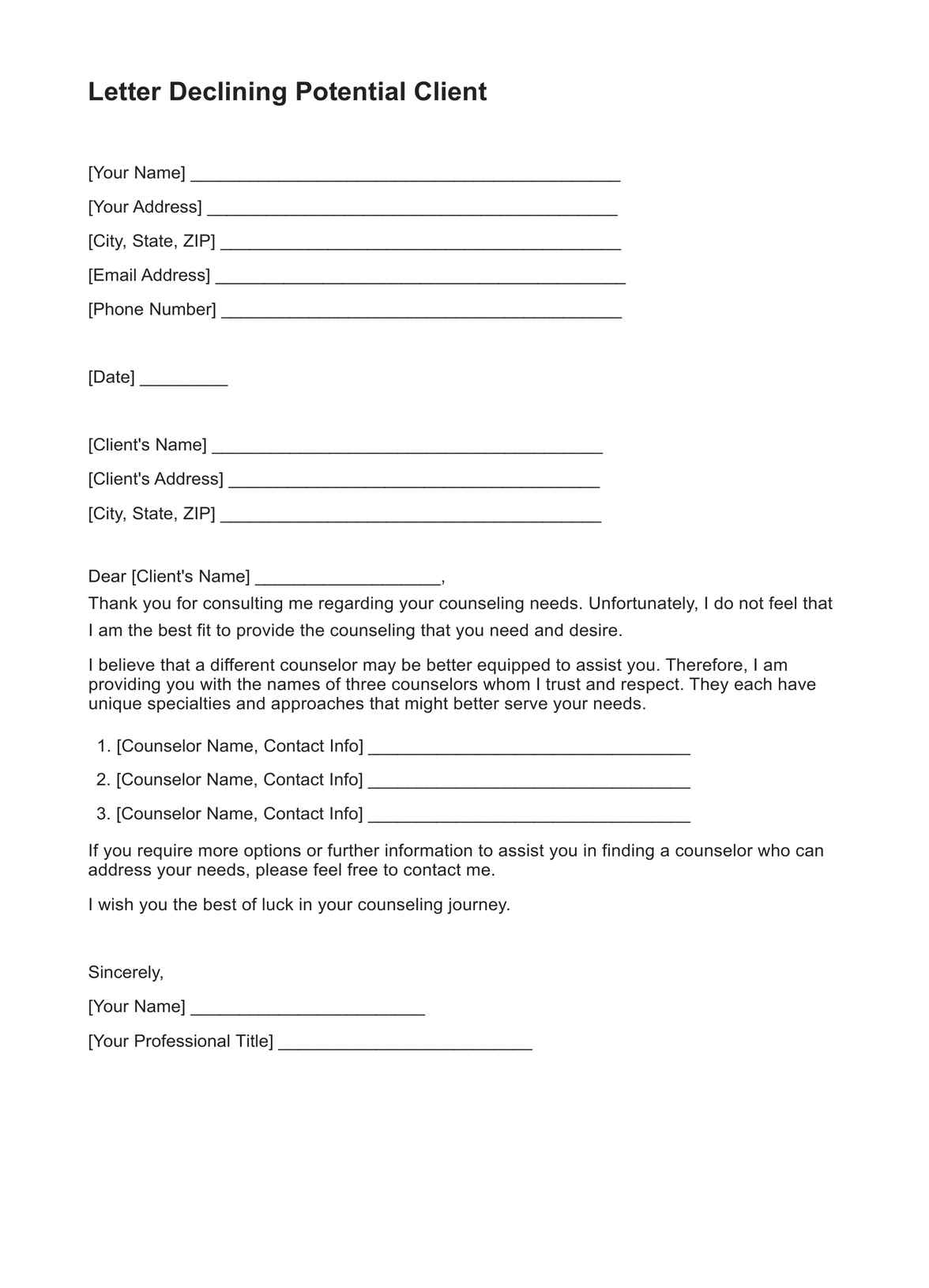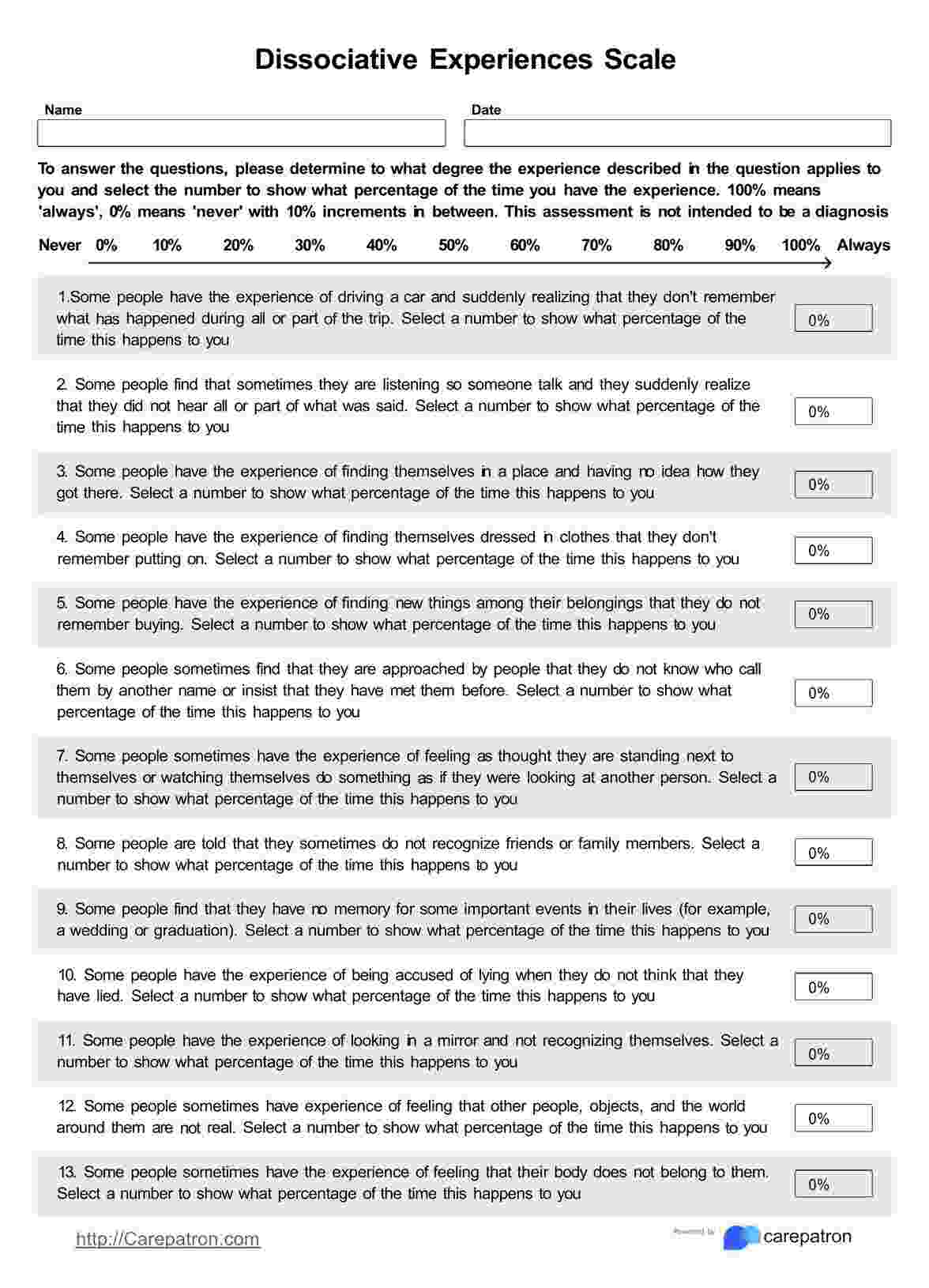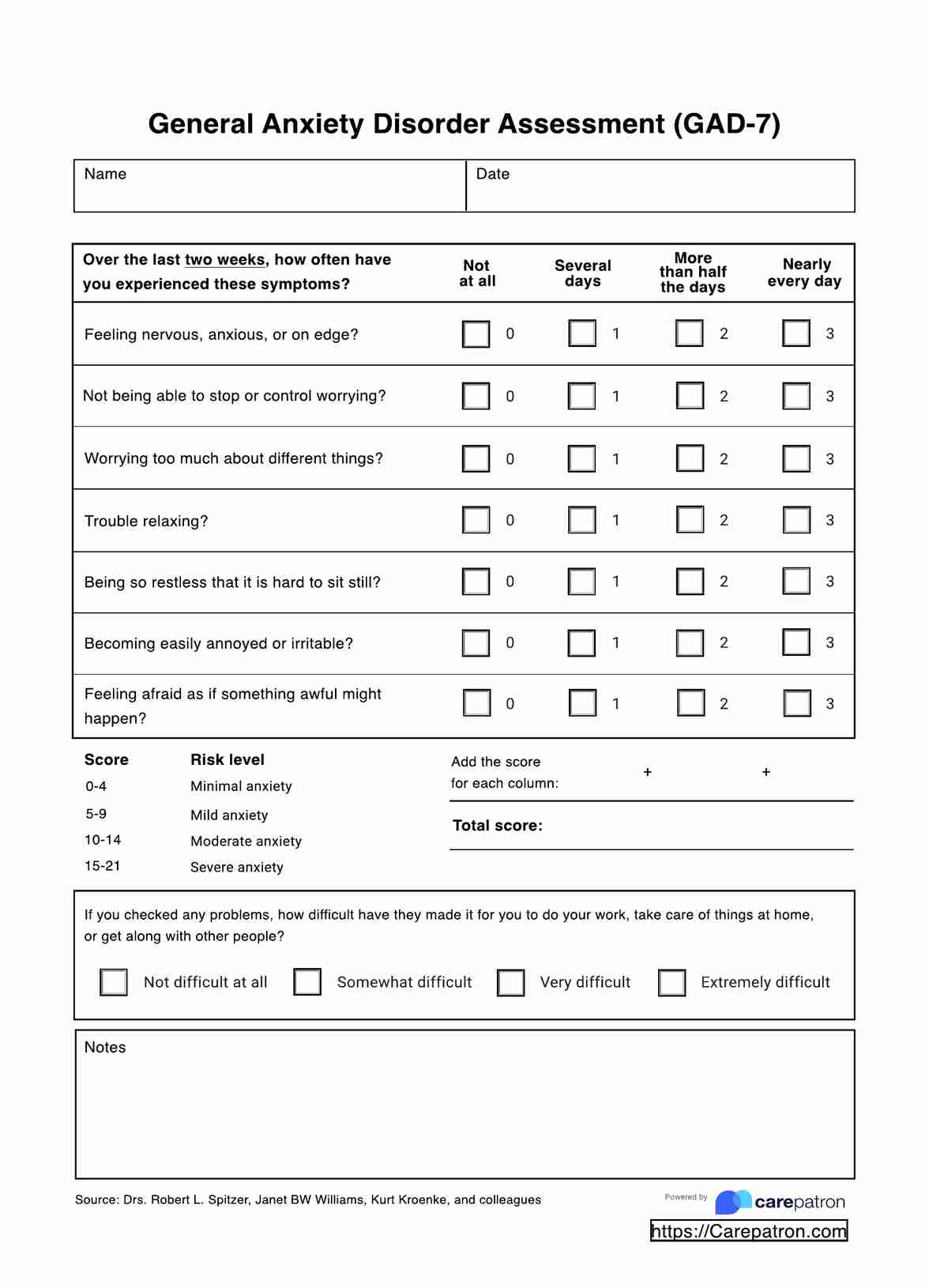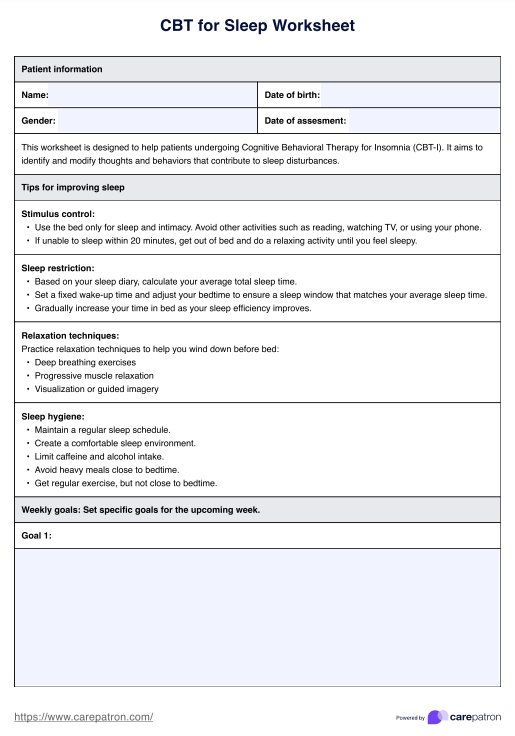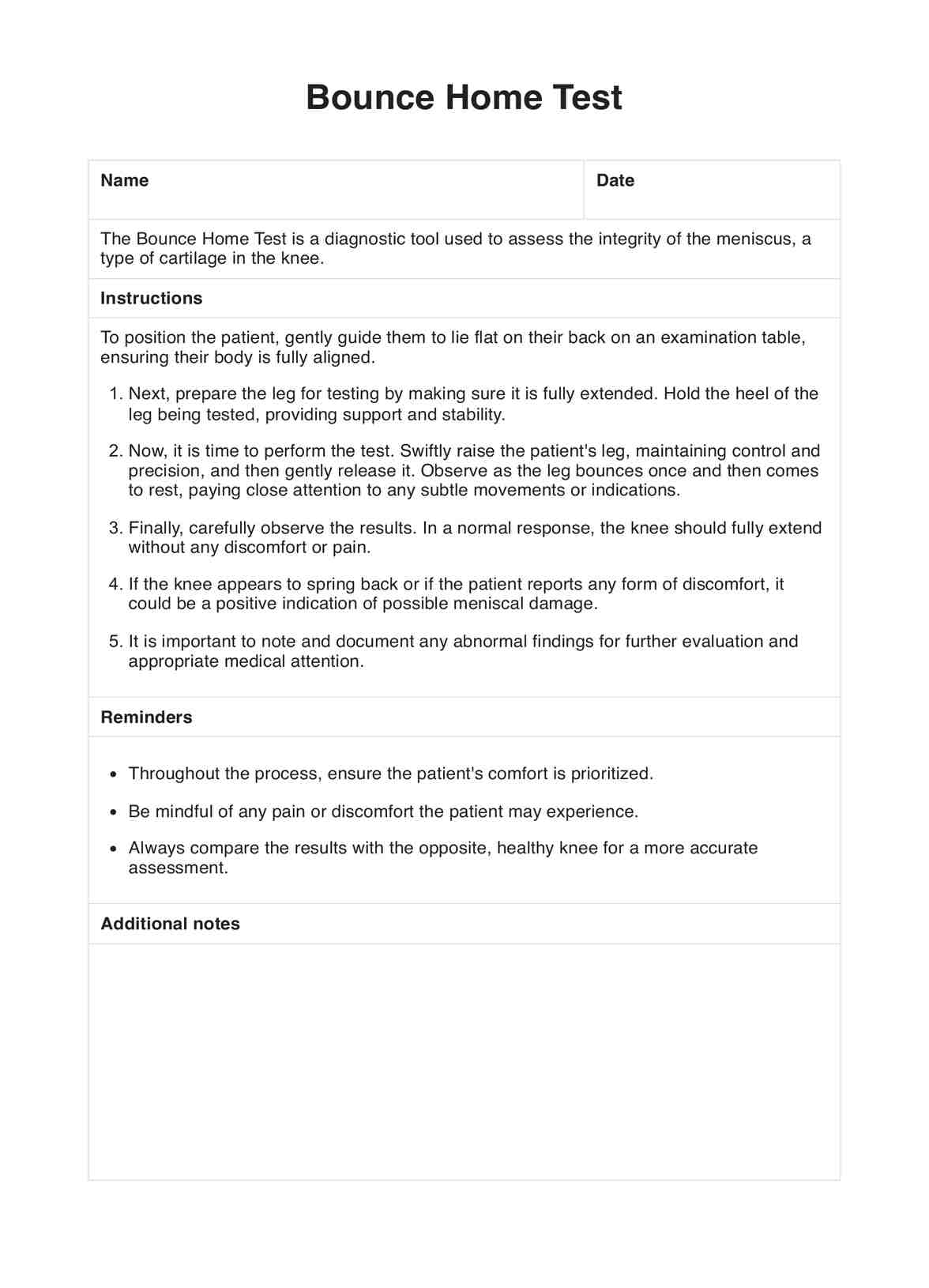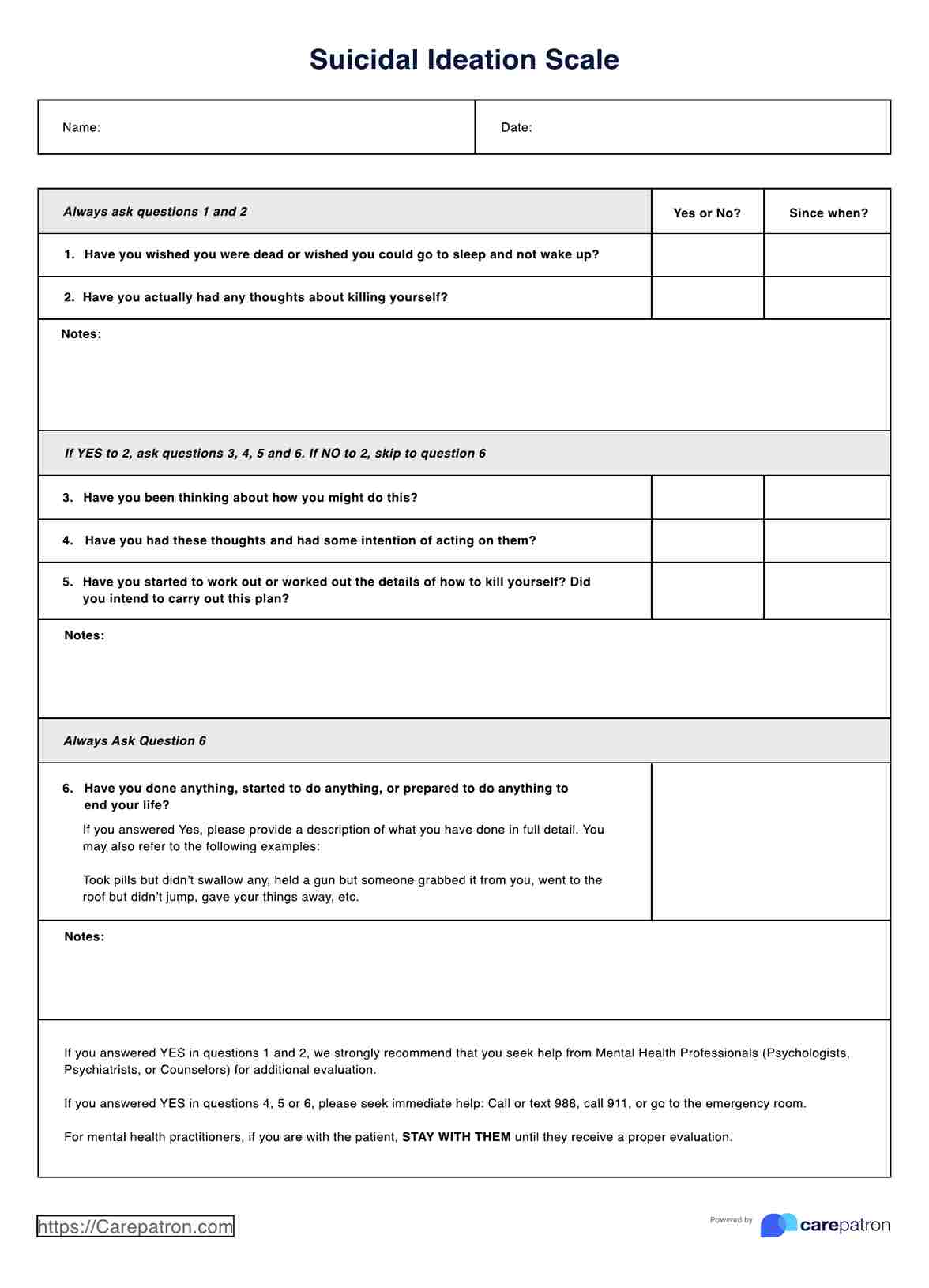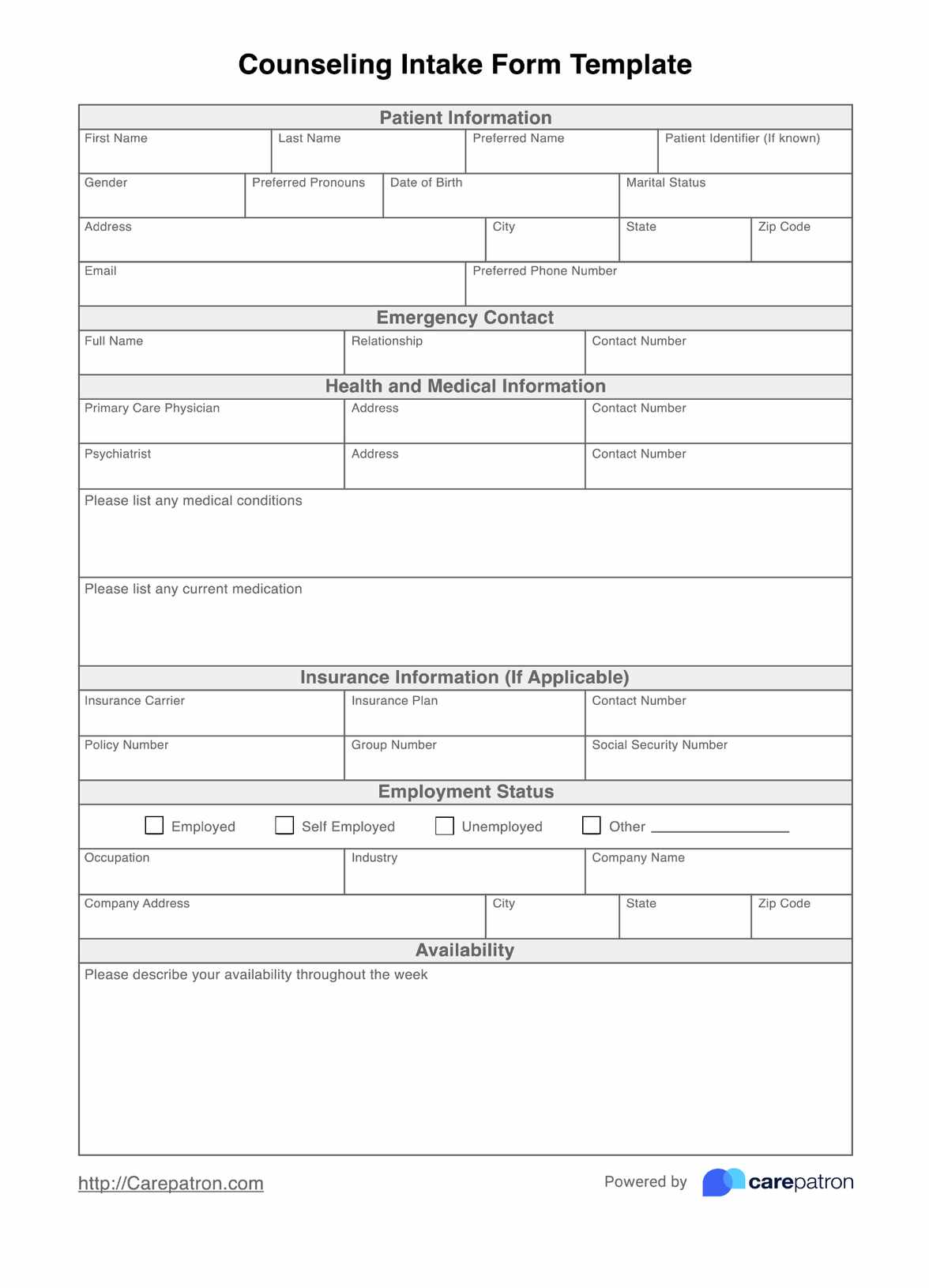Defectiveness Triggers ACT Worksheet
Use this Defectiveness Triggers ACT Worksheet to help clients identify what triggers their defectiveness coping behaviors.


What is Acceptance and Commitment Therapy?
A type of psychotherapy developed in the 1980s by psychologist Steven Hayes, Acceptance and Commitment Therapy or is an action-oriented type with roots in traditional behavior therapy and cognitive-behavioral therapy. ACT treats mental and physical conditions like anxiety, depression, OCD, psychosis, substance use/eating disorders, and chronic pain/stress.
The goal of mental health professionals with ACT training or licensed and experienced therapists like psychiatrists, psychologists, social workers, and counselors, during their ACT sessions is to teach the client the following:
- Acceptance instead of denial, avoidance, and struggling to handle their feelings
- Feelings are normal and appropriate responses to any situation, thought, or experience
- How to utilize the information and tools provided during the sessions to care for their well-being
More specifically, referring physicians aim to help patients develop the following core processes:
Acceptance
This means allowing and accepting any opposing thoughts or feelings without denying or wanting to change them.
Cognitive Defusion
This means changing how one reacts to their feelings and thoughts from harmful, negative ones to more positive ones beneficial to their wellbeing.
Mindfulness or Being Present
This means being present and observing events or thoughts without judgment or desire to change them.
Self as Context
This means understanding and accepting that the client isn't defined by what happens to them and that they are not a sum of their emotions, experiences, and thoughts.
Values
This means determining the values they strive to live for.
Committed Action
This means taking the steps needed to improve their lives amidst difficult situations, experiences, and thoughts using the tools provided by the practitioner.
Defectiveness Triggers ACT Worksheet Template
Defectiveness Triggers ACT Worksheet Example
How to use the Defectiveness Triggers ACT Worksheet:
Access and Download the Template
To access and download a digital and printable file of the Defectiveness Triggers ACT Worksheet, you can do either of the following:
- Click the Download Template or Use Template button
- Search Defectiveness Triggers ACT Worksheet in the Carepatron's template library search in the app or website
Explain the Template
Even if the worksheet is simple, the template itself lacks some instructions, so it's better if you explain the template and its sections:
Domain and Situation Section
This section asks clients to determine the domain and specific situations that trigger their defective coping behaviors. Usually, these situations make the client feel vulnerable, depressed, or angry.
Thoughts, Emotions, and Urges Sections
In this section, ask the client to write down any thoughts, feelings, or urges they may have had during the mentioned situations.
Behavioral Reactions Sections
Finally, in this section, ask the client to write down how they responded to the thoughts, emotions, or urges during the situation.
If you can better explain the sections with a visual resource, you can use the sample template provided in this guide.
Fill the Template
Once the client understands how to fill out the worksheet, you may provide them with multiple copies to be filled out twice to thrice a week for the next eight weeks to get a complete picture of the client's defective coping behavior.
Store Securely
These worksheets no doubt carry sensitive information. Therefore, it's best to ask your client to store physical copies at a secure location or digital copies on Carepatron. That way, only relevant parties, such as yourself and your client, can access it when needed.
When would you use this Defectiveness Triggers ACT Worksheet?
Mental health practitioners who have additional training in ACT, those with a license and experience like therapists, social workers, psychiatrists, psychologists, and counselors can use this Defectiveness Triggers ACT Worksheets with clients who:
- Don't receive care from parents or caregivers
- Have been physically or sexually abused
- Have a concerning attachment and love relationship history
- Often feels unlovable
- Have you had a difficult childhood or traumatic experience
- Based on their stories, they have defective coping behaviors
What are the benefits of using this Defectiveness Triggers ACT Worksheet?
Improved Self-Awareness
Since the worksheet will ask the client to identify their defective coping behavior during triggering situations and write down what they felt/thought and how they responded, they'll have to learn to be more self-aware. Over time, unknowingly, they'll improve their self-awareness.
Provides Insight
With the worksheet, especially multiple completed copies of them over a while, the referring physician has enough information to conclude the defective coping behaviors of the client. Having this knowledge will help them understand the client better, form a trusting professional relationship, and
Easily Accessible
If the practitioner and client agree to use the digital file of the free Defectiveness Triggers ACT Worksheet and store it on Carepatron, they will not only be able to effortlessly access and complete the template on a PDF editor on any gadget on hand.
Commonly asked questions
It usually takes a client at most an hour to accomplish one copy of the Defectiveness Triggers ACT Worksheet.
The Defectiveness Triggers ACT Worksheet can help people be more aware of the situations/events that trigger their defective coping behaviors.
The Defectiveness Triggers ACT Worksheet is best used right after an uncomfortable situation or event to keep the details of what they thought of, felt, etc., fresh.


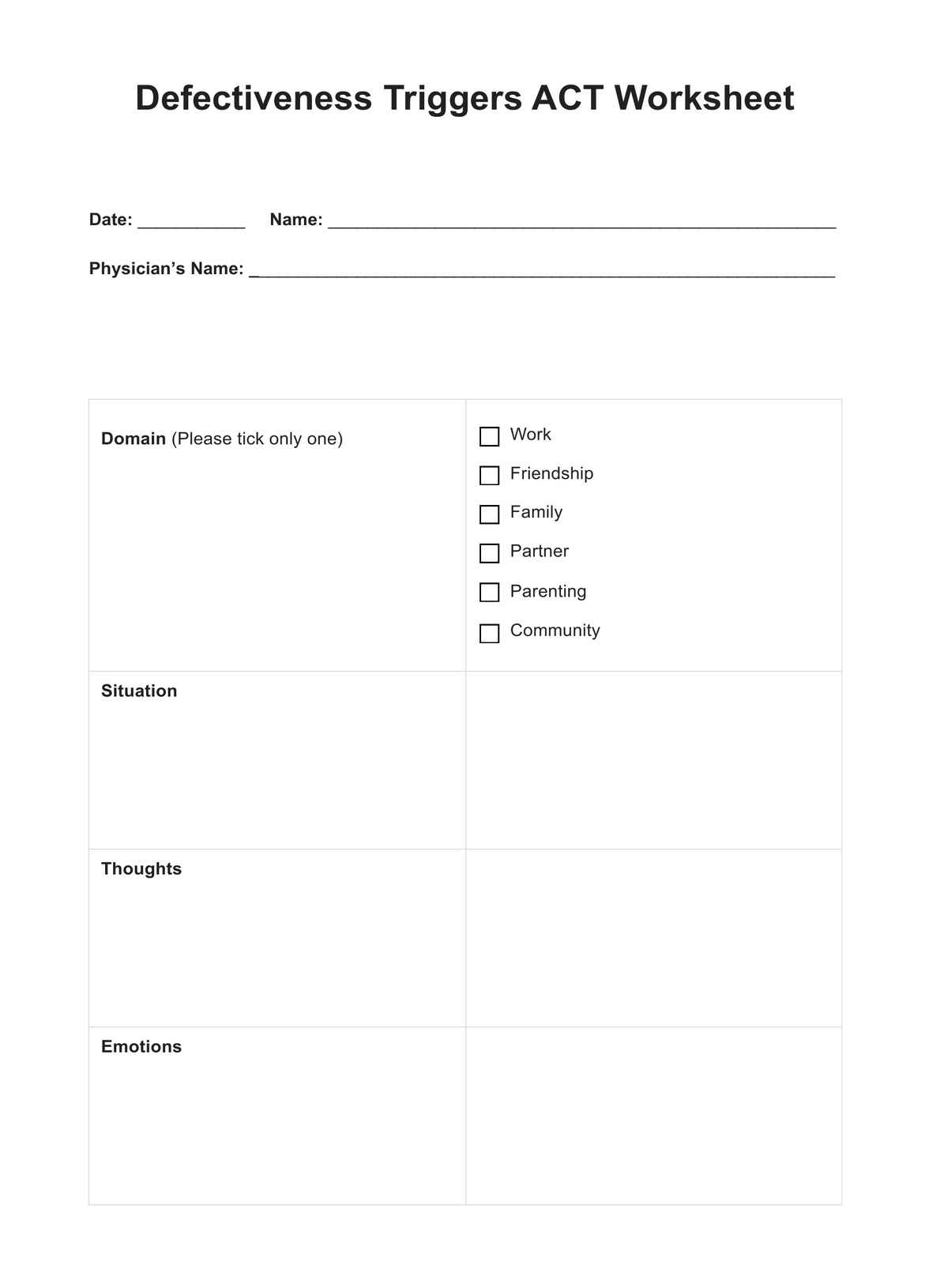
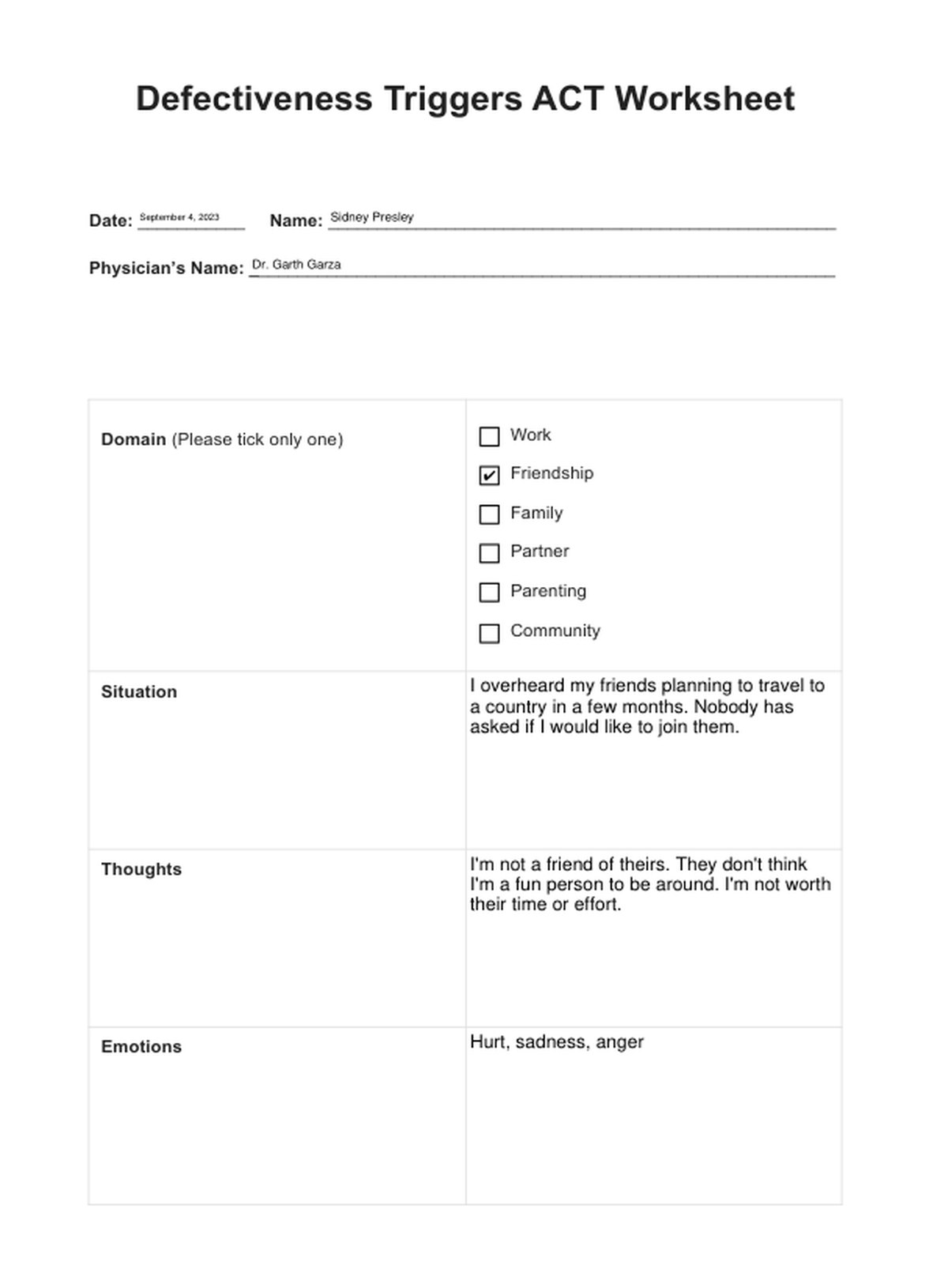

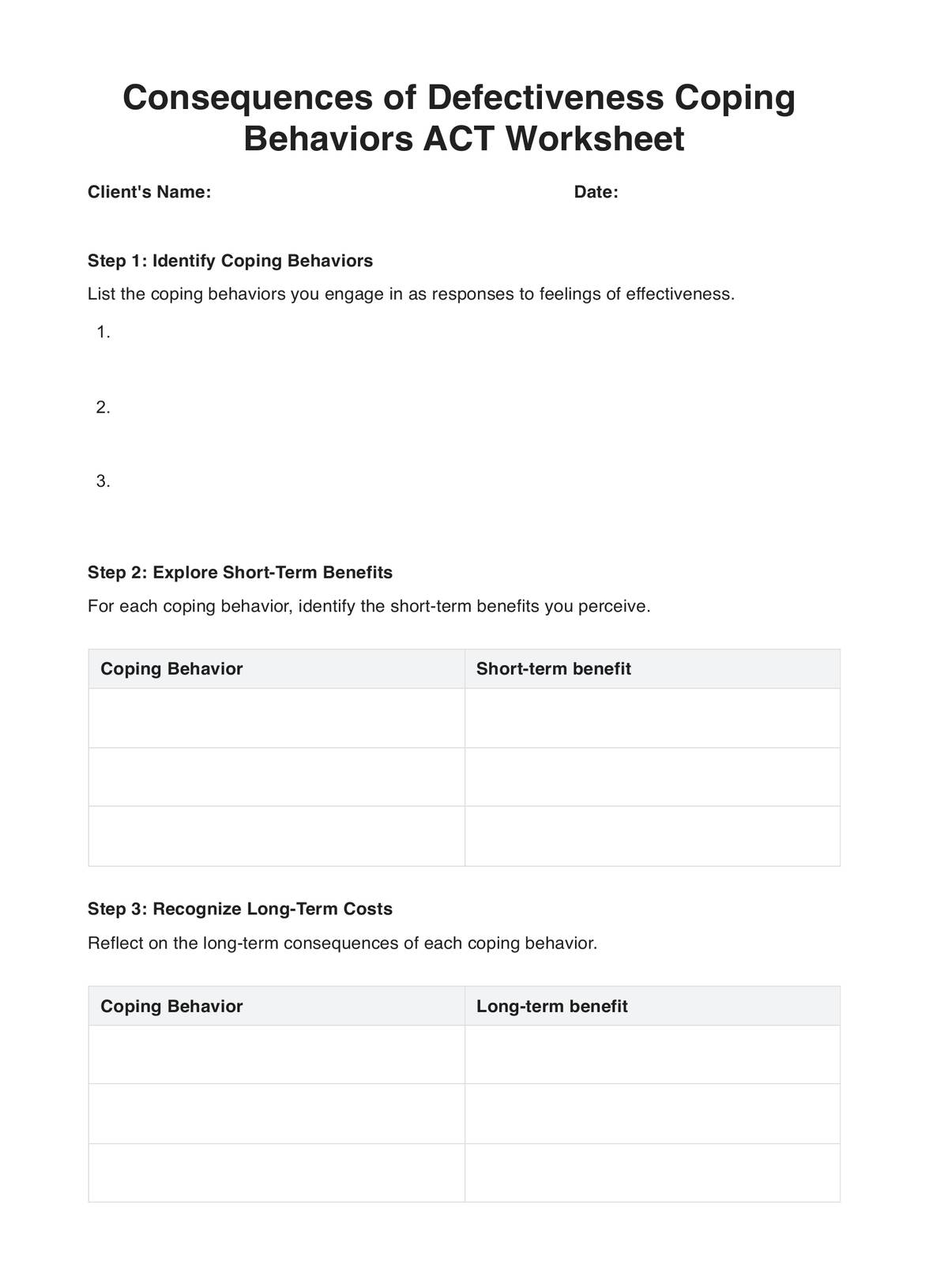














-template.jpg)






